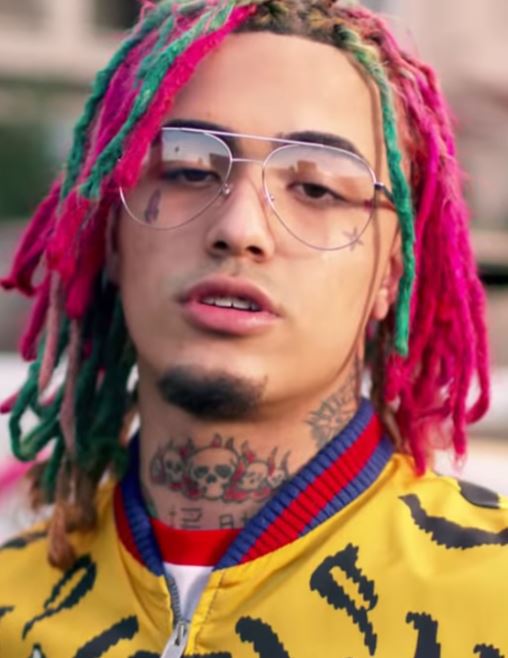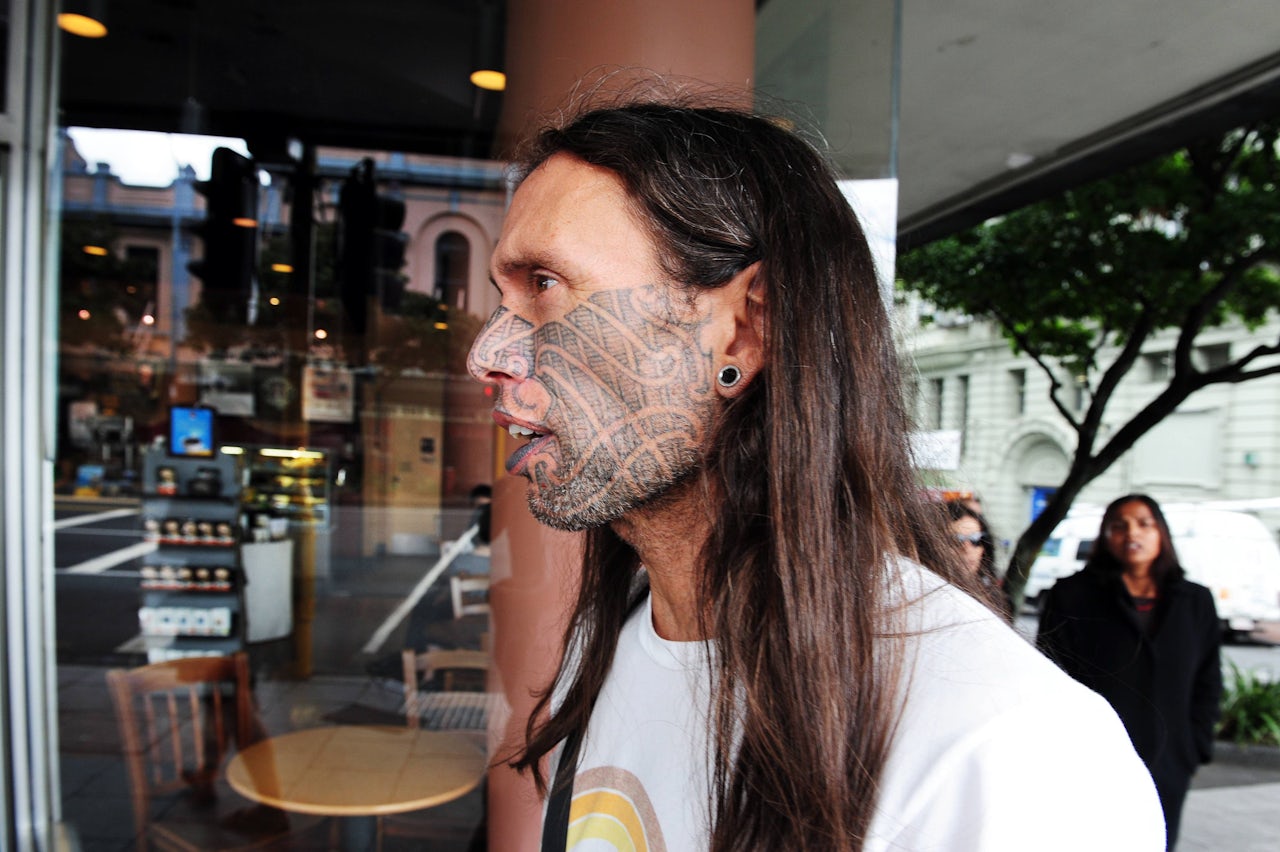When you think of white rappers with face tattoos, the first thing that might pop into your mind is rebellion, edginess, or maybe even controversy. But let’s be real, there’s so much more to this scene than just ink and rhymes. This subculture has carved out its own space in the music world, blending unique aesthetics with raw talent. Whether it’s about self-expression or challenging societal norms, these artists are making waves—and they’re here to stay.
In recent years, the rise of white rappers with face tattoos has sparked both admiration and debate. While some critics argue that it’s merely a trend or even cultural appropriation, others see it as an authentic form of individuality. These artists aren’t just about the music—they’re about the message, the art, and the journey. So buckle up, because we’re diving deep into this fascinating world!
This article isn’t just about listing names or showing off pictures of face tattoos. It’s about understanding the culture, exploring the stories behind these artists, and shedding light on how they’re changing the game. If you’ve ever wondered what drives someone to ink their face and rap their heart out, you’re in the right place.
Read also:Jena Frumes The Rising Star In The Music Industry
Who Are the White Rappers With Face Tattoos?
Before we dive into the nitty-gritty, let’s take a moment to define who exactly we’re talking about here. White rappers with face tattoos are exactly what the name suggests—artists who identify as white and have chosen to express themselves through permanent facial ink. But why do they do it? Is it all about shock value, or is there more to it?
Some of these rappers see their tattoos as a reflection of their personal struggles, triumphs, and beliefs. Others view them as a way to stand out in a crowded industry where everyone is vying for attention. Whatever the reason, one thing is clear: their art isn’t just skin-deep.
Why Face Tattoos? The Story Behind the Ink
Face tattoos have a long and rich history across various cultures. From the Maori tribe in New Zealand to Native American traditions, facial ink has always held deep significance. But when it comes to modern-day rappers, the motivations can vary widely.
- For some, it’s about breaking free from societal expectations.
- Others see it as a way to honor their heritage or pay tribute to loved ones.
- Then there are those who simply love the art form and want to showcase it proudly.
Whatever the reason, face tattoos are more than just a fashion statement—they’re a bold declaration of identity.
Meet the Key Players: Biographies and Stats
Biography of Notable White Rappers With Face Tattoos
Let’s get to know some of the biggest names in this space. Below is a quick rundown of their backgrounds, achievements, and what makes them tick.
| Name | Age | Origin | Notable Achievements |
|---|---|---|---|
| Machine Gun Kelly | 32 | Akron, Ohio | Grammy nomination, multiple chart-topping albums |
| Playboi Carti | 26 | Atlanta, Georgia | Collaborations with major artists, viral hits |
| Trippie Redd | 24 | Canton, Ohio | Billboard hits, unique sound |
These artists aren’t just about the music—they’ve built entire personas around their art. And let’s not forget, their face tattoos play a huge role in that.
Read also:Unveiling The Life Partner Of Aaron Pierre Exploring His Marital Status
The Cultural Impact of White Rappers With Face Tattoos
When you think about it, the cultural impact of white rappers with face tattoos is massive. They’re challenging stereotypes, pushing boundaries, and redefining what it means to be an artist in today’s world. But with great power comes great responsibility, and not everyone is happy about it.
Challenging Stereotypes: Breaking Down Barriers
One of the biggest things these artists are doing is breaking down barriers. For years, the music industry has been dominated by certain stereotypes—black rappers with street credibility, white rockers with guitar solos, and so on. But now, we’re seeing a new wave of artists who refuse to be boxed in.
Take Machine Gun Kelly, for example. He’s a white rapper from Ohio who’s made a name for himself in both the hip-hop and rock scenes. His face tattoos aren’t just decorations—they’re symbols of his journey and his refusal to conform to expectations.
Controversy and Criticism: The Good, the Bad, and the Ugly
Of course, with any movement comes controversy. Some people argue that white rappers with face tattoos are guilty of cultural appropriation, while others see them as pioneers of a new era. So, what’s the truth?
Is It Cultural Appropriation?
This is a question that comes up a lot in discussions about white rappers with face tattoos. Critics claim that these artists are borrowing elements of black culture without fully understanding or respecting their origins. While this is a valid concern, it’s important to note that not all white rappers are guilty of this.
Many of them, like Playboi Carti, have cited black artists as major influences and have worked hard to give credit where it’s due. It’s all about intention and respect.
The Art of Face Tattoos: More Than Just Ink
Now, let’s talk about the actual tattoos themselves. What do they mean? How are they designed? And why are they so important to these artists?
Designs and Symbolism
Each tattoo tells a story. For instance, Machine Gun Kelly’s face tattoos are deeply personal and symbolic. They represent his struggles, his triumphs, and his commitment to his craft. Similarly, Playboi Carti’s tattoos are a reflection of his creativity and his desire to push the limits.
But it’s not just about the design—it’s about the meaning behind it. These tattoos aren’t just for show; they’re a permanent reminder of who these artists are and what they stand for.
Music Style and Influences
When it comes to music, white rappers with face tattoos bring a unique blend of styles to the table. They’re not afraid to experiment, mix genres, and create something entirely new. But where do they draw their inspiration from?
Blending Genres: From Hip-Hop to Rock
One of the coolest things about these artists is their ability to blend genres seamlessly. Machine Gun Kelly, for instance, has successfully transitioned from rap to rock, proving that he’s not limited by labels. Playboi Carti, on the other hand, has created his own unique sound that defies categorization.
It’s this willingness to experiment and innovate that sets them apart from the rest.
Success Stories: How They Made It Big
Every artist has their own path to success, and white rappers with face tattoos are no exception. But what exactly does it take to make it in this competitive industry?
From Humble Beginnings to Global Fame
Many of these artists started out in small towns, working hard to hone their craft and build their fan base. Trippie Redd, for example, grew up in Canton, Ohio, and used social media to gain exposure. His unique style and catchy beats quickly caught the attention of industry insiders, and the rest is history.
It’s stories like these that remind us that success isn’t just about talent—it’s about perseverance and dedication.
Challenges Faced by White Rappers With Face Tattoos
Of course, the road to success isn’t always smooth. White rappers with face tattoos face their fair share of challenges, from negative stereotypes to industry backlash. But how do they overcome these obstacles?
Overcoming Obstacles: Resilience and Determination
One of the key traits these artists share is resilience. They’ve faced criticism, doubt, and even hate, but they’ve refused to let it stop them. Instead, they’ve used it as fuel to drive them forward.
Take Playboi Carti, for example. He’s faced his fair share of criticism, but he’s remained true to himself and his art. That kind of determination is what sets him apart.
The Future of White Rappers With Face Tattoos
So, where is this movement headed? With new artists emerging all the time and the industry constantly evolving, the future looks bright for white rappers with face tattoos. But what can we expect to see in the coming years?
Trends and Predictions
One thing’s for sure—this subculture isn’t going anywhere anytime soon. We can expect to see more experimentation with genres, more collaboration between artists, and even more innovation in the way these rappers present themselves.
As technology continues to advance, we may also see new ways for these artists to connect with their fans and share their stories. The possibilities are endless!
Kesimpulan: Why You Should Care
In conclusion, white rappers with face tattoos are more than just a trend—they’re a movement. They’re challenging stereotypes, pushing boundaries, and redefining what it means to be an artist in today’s world. Whether you love their music or not, you can’t deny the impact they’re having on the industry.
So, what can you do? Share this article, leave a comment, and let’s keep the conversation going. Together, we can celebrate diversity, creativity, and the power of self-expression. And who knows? Maybe one day, you’ll be inspired to ink your own story.
Thanks for reading, and remember—life’s too short to play it safe. Stay bold, stay real, and keep it lit!


